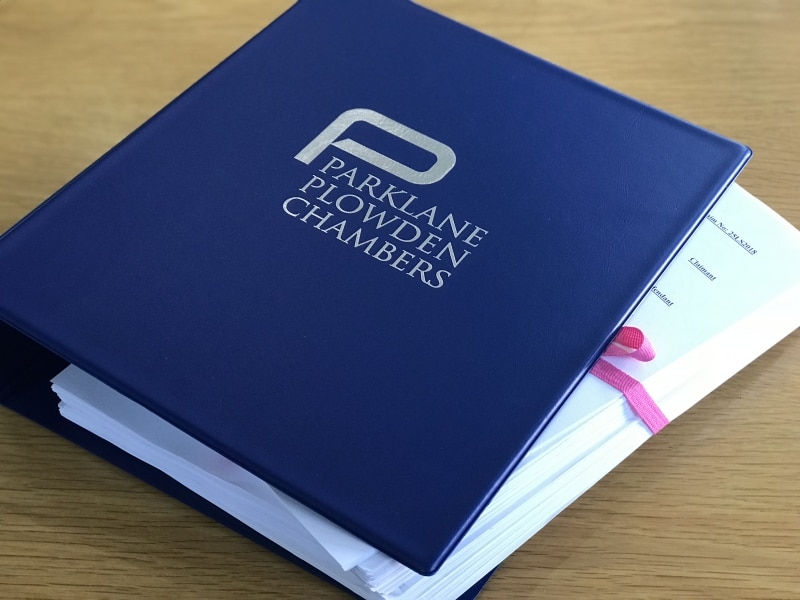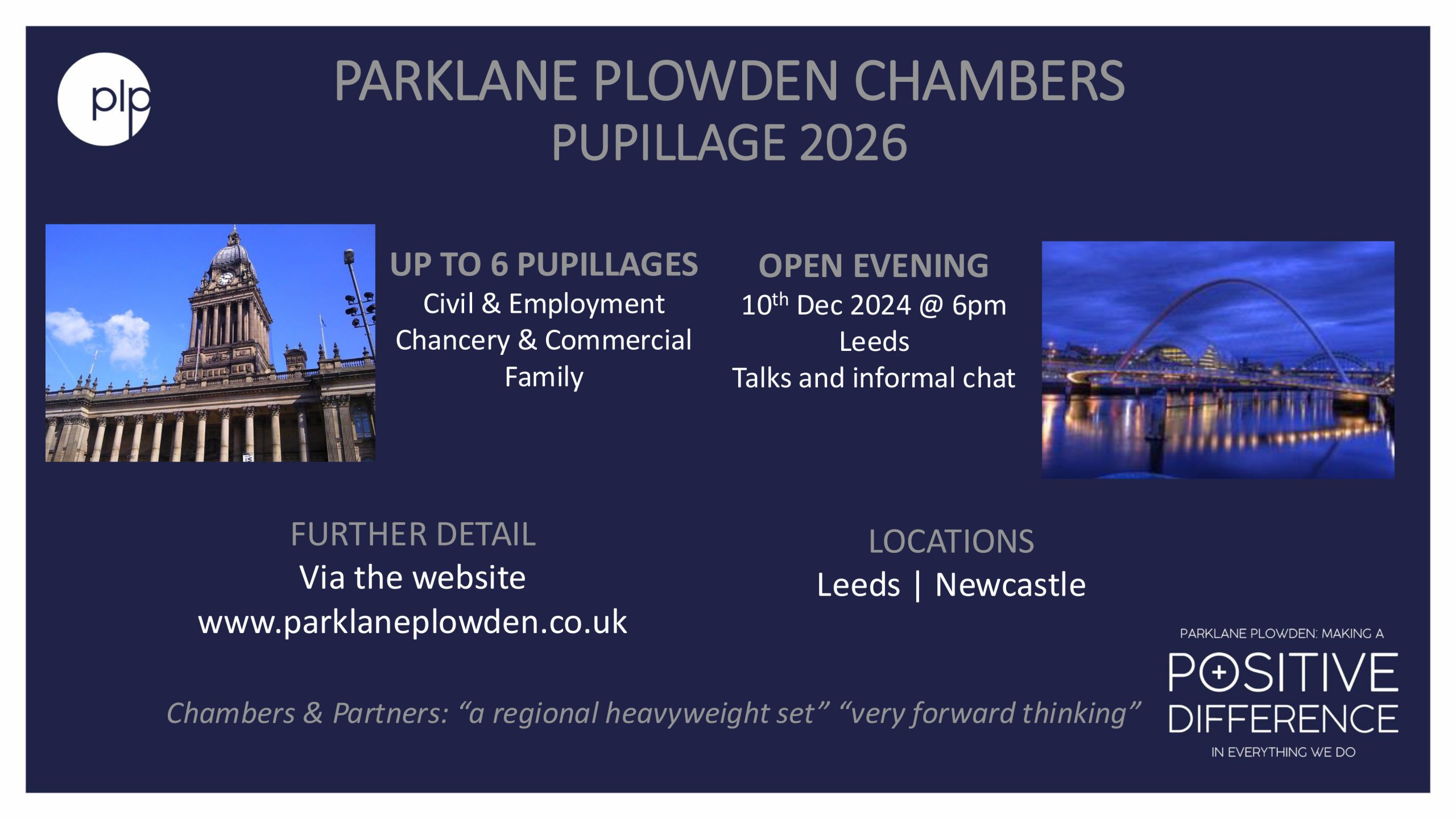Civil pupils Bethan Davies and Emily Slocombe share their experiences of pupillage interviews.

Following on from their recent blog post on pupillage applications, our civil pupils Bethan Davies and Emily Slocombe share their experiences in pupillage interviews and provide guidance on making a good impression.
Make a good first impression
Making a good impression is important throughout your legal career and this starts with pupillage interviews.
Make sure you arrive early. This is especially important if there are tasks which you are required to complete before the interview. That said, if you are going to be late for any reason then do call chambers.
Be presentable and dress smartly in a dark suit. Think court dress and you should be pitching it just right (wigs and gowns are not necessary though!).
Be polite to everyone you meet! You might not realise who you are speaking to and all those you meet are likely to be asked for feedback. You want to be memorable but not for the wrong reasons. At the Bar how you treat people around you is very important.
Make the most of mock interviews
It is worth seeking out any support available, interviews can be very stressful and having a practice run (or two) can really help ease the inevitable nerves.
If you are currently studying for the BPTC your provider will have a specialist career service with experience conducting mock pupillage interviews. Further, some providers allow alumni continued access to their careers services.
If you are involved in an Inns of Court mentoring scheme, or alternatively a scheme within your University, do not be afraid to ask your mentor to run through a mock interview with you.
Have (or fake) confidence
How you come across in an interview will give your interviewers a flavour of how you will ultimately come across in court. Whilst your application is a form of written advocacy your interview is your oral advocacy. This means that you need to have conviction behind your answers. When asked a question it is fine to take a moment to think about a well-reasoned answer. Taking time to come up with an answer which you feel good about, and can explain the reasoning for, will come across much better than rushing to come out with an answer which you then cannot back up.
One of the reasons it is important to have confidence in your answers is because your answer will at some point be challenged. This does not mean that your answer is wrong, it actually might mean the opposite. However, the panel want to fully understand how you have got to your answer and whether you are willing to stick to it when challenged. Imagine in court, you have made a submission and now the judge is putting questions to you. You aren’t going to back down and concede your whole case. This is the same as your interview. Having said this, if you realise that you have made a mistake, it is ok to hold your hands up, admit your mistake and explain why you have now changed your view.
Thoroughly prepare legal questions
Often Chambers will provide questions or an exercise to prepare before the interview. This may be in preparing a written document or an advocacy exercise. Use this to your advantage – having thoroughly prepared this exercise means you can be confident you have done all you can.
If you don’t fully prepare you are doing yourself an injustice. This links back to first impressions. If you haven’t prepared for the advocacy or failed to do the written work it may look like you don’t care, or don’t want it enough – remember you will be up against tough competition!
It is likely to be acceptable to take in notes for these questions. However, only take in notes. Do not write a script and just read it.
We also think that making a bank of questions between friends works well. It gives you a chance to see questions, or themes, which regularly come up and spend time planning these.
Keep up to date with current affairs
Frequently interview panels will ask questions about current affairs, be these legal or non-legal topics. Whilst you cannot be expected to have an encyclopaedic knowledge of every broadsheet, you should be abreast with recent major national and international news, current “hot topics” and legal news stories.
There are lots of ways to ensure you are up to date, the legal sections of national newspapers are exceptionally helpful and you could consider setting Google alerts for legal updates in specific practice areas.
As well as legal blogs, there are several fantastic legal podcasts such as the BBC’s Law in Action.
End on a high
Almost invariably your interview will end with you being invited to ask a question. At this stage all eyes are on you. Whilst preparing for this final stage may not be a priority, it is worth some consideration. A good question will end your interview on a high.
A thought-provoking and interesting question allows you to do two things: garner information about Chambers that you otherwise have been unable to ascertain, and indicate to the panel what factors are important to your future career choices.
We hope that our advice will stand you in good stead for any pupillage interview. Good luck!










